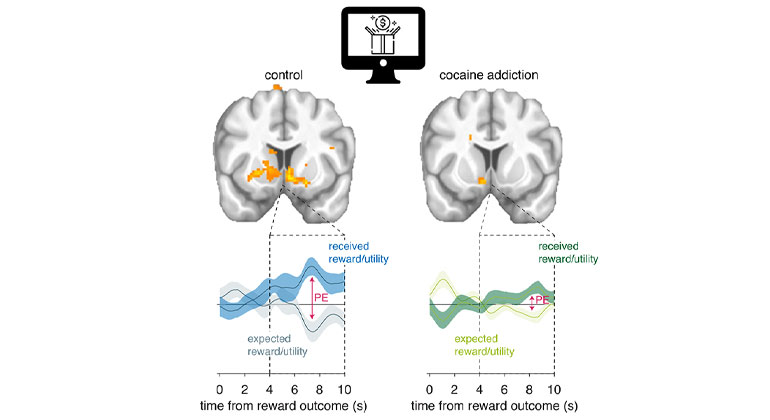"Human Drug Addiction Behaviors Tied to Specific Impairments in Six Brain Networks"
The Impaired Response Inhibition and Salience Attribution (iRISA) model, first published in 2002 by Rita Goldstein, PhD, Professor of psychiatry and neuroscience and director of the Neuropsychoimaging of Addiction and Related Conditions research program at the Icahn School of Medicine at Mount Sinai, proposed that impairments of two broad neuropsychological functions - response inhibition (a cognitive process that permits individuals to inhibit their impulses) and salience attribution (the property of tagging something as valuable or important) – and their underlying neural substrates contribute to the cycle of addiction across a broad range of substances of abuse. "Our review is the first systematic approach to integrate what we know about the function of each of these networks into a comprehensive model underlying drug addiction symptomatology across the addiction cycle," said Anna Zilverstand, PhD, assistant professor of psychiatry at the Icahn School of Medicine at Mount Sinai and first author of the paper.
- Rita Goldstein, PhD, Professor, Psychiatry, Neuroscience, Icahn School of Medicine at Mount Sinai, Chief, Brain Imaging Core, Director, Neuropsychoimaging of Addiction and Related Conditions Research Program
- Anna Zilverstand, PhD, Assistant Professor, Psychiatry, Icahn School of Medicine at Mount Sinai
